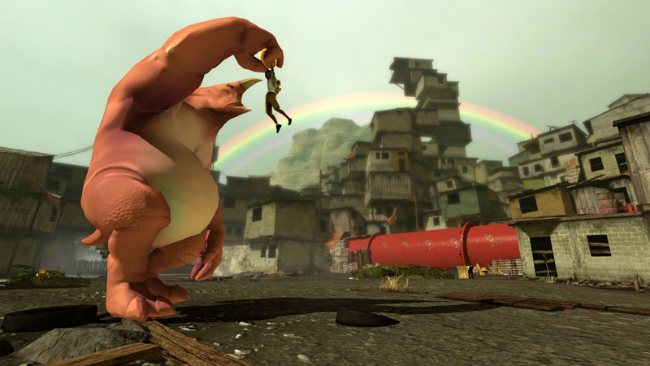The New York Public Library aims to get the public thinking critically about games. Is the world ready for game criticism?

This article originally appeared on dashjump.com.

Maybe 2012 will be the year that games grew up. After all, it was the year that the Smithsonian presented The Art of Video Games, “one of the first exhibitions to explore the forty-year evolution of video games as an artistic medium”; the year that MoMa began its foray into videogame collecting with 14 choice titles; and the year that the New York Times expanded its gaming coverage with reviews and coverage from Kotaku.
But is gradual acknowledgement from our heralded cultural institutions the key to the legitimization of the medium?
More...
Or does it take something more – a greater understanding by the general public – to truly bring games alongside revered cultural modes like film, literature and music?Thomas Knowlton seems to think so. A senior librarian at the New York Public Library, Knowlton runs the NYPLarcade, a series of programs intended to bring a critical perspective to games for a general audience.
So how do you delve into theme and mechanics with people who may not have held a controller since Pac-Man? According to Knowlton, the first step is to create a vocabulary conducive to discussing games critically, and a great way to do that is by providing context.
“Since (game) criticism is so new and game studies are still evolving, even for people who have played games a lot, sometimes this is their first chance to really talk about games in a critical way.” –Thomas Knowlton
By playing and discussing games in a series, as with an early program that looked at Jenova Chen's work, it’s easier for people to create connections and find parallels between titles with consistent elements or creators. It’s also easy to forget that relatively lower-profile games like Journey, Flower and Flow easily get lost in the multimillion-dollar marketing onslaughts for more mainstream fare; so for non-gamers, this may be their first encounter with any of them.
But if game criticism is truly to become as accepted as film reviews and music critiques, what about worthwhile titles with less-accessible qualities, like Hotline Miami’s brutal difficulty curve, or FTL’s dense management systems? Even the most convoluted foreign films still average under three hours; how is a non-gamer interested in the medium able to relate to a game that just asks too much of them?
For Knowlton, the simple aspect of holding discussions in a shared space helps defuse some of this potential frustration. For many non-gamers, games remain an intriguing mystery. By walking through some of the expected issues, and addressing accessibility barriers that would normally turn off curious users completely, the group is able to still explore the game and find sources of worthwhile critique.
“If you’re playing something like FTL, tell them up front, ‘Hey, this is a difficult game, you will die 100 times;’ try to clue people in to what to expect and talk about other, similar games.” –Thomas Knowlton
The benefits of introducing game criticism aren’t limited to exposing games to a broader audience – savvy gamers are just as able to walk away enlightened. One of the few downsides of the current explosion of creative, innovative indie games is that there are just so many of them. Critical forums that meet in physical space enable gamers to finally sit down and play some of the more experimental games that may have slipped under their radar.

Games are being looked at by more traditional institutions than ever. Just the fact that the New York Public Library is interested in their cultural value enough to create programming around them is certainly newsworthy, and remains a notable step forward in the maturing of the medium. But why now?
Knowlton posits that we’re simply sowing the fruits of a natural progression. “Game criticism has come a long way. The conversations going on now – you couldn’t have had these conversations 10 years ago; we didn’t have the vocabulary or the history.”
And as you peel back each layer of the industry’s history and look at the advances in technology and design of the 70s, 80s, 90s and 2000s, it stands to reason that there is simply more knowledge to pull from when creating games than there has ever been. Informed by the successes of the past and warned by the ambitious failures that have gone before, new generations of game makers are leveraging this wealth of history to synthesize new experiences, combined with their own innovative ideas of what might work. This sense of reaching back into the past in order to go forward helps lend a noticeable feel of timelessness to the standout hits of today, affecting everything from Super Meatboy and Braid to Halo 4 and Hero Academy.
“It’s sort of a golden age for video game criticism right now.” –Thomas Knowlton
What’s next for game criticism? For NYPLarcade, Knowlton is investigating longer games played over the course of several sessions, like Grim Fandango or the Metal Gear Solid games. Elsewhere, the propagation of interactive fiction and TWINE games seems poised to inspire an entirely new audience to craft and critique their own interactive adventures. And in mainstream culture, notable events like inclusion in the Smithsonian and MoMa are arbiters of the mass cultural acceptance that’s to come.
But there’s still one major threshold we have yet to cross. One last cultural marker that has embraced film, music, television, art, architecture, photography, cuisine, automobiles, dance, theater, literature and fashion.
The Pulitzer Prize for Criticism has recognized outstanding and notable works of criticism in each of these fields. Looking at games backward through history, keeping in mind the relative newness of the medium, the question is not if or when a game critic will ever receive the award.
The question is – who will be the first?
Ben Serviss is a freelance game designer working in commercial, social, educational and indie games. Follow him on Twitter at @benserviss. |
Read more about:
BlogsAbout the Author(s)
You May Also Like









